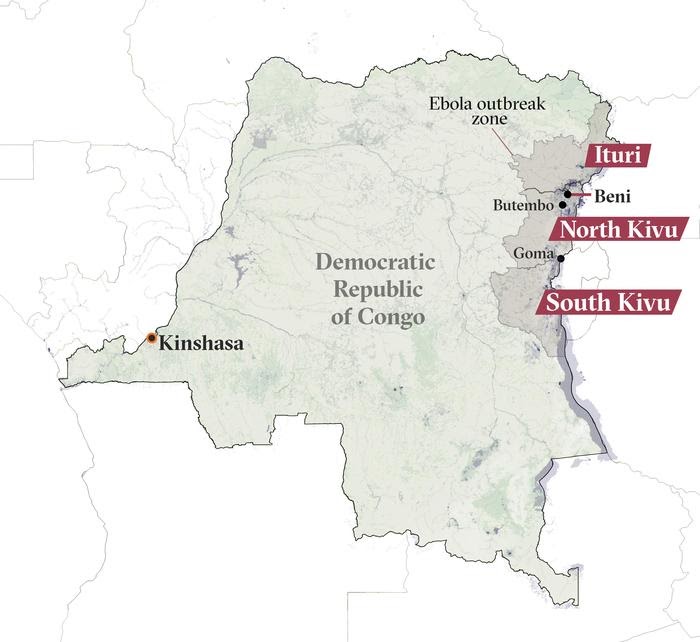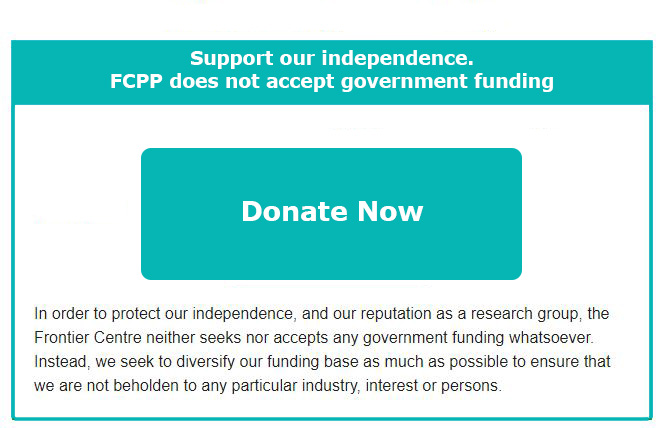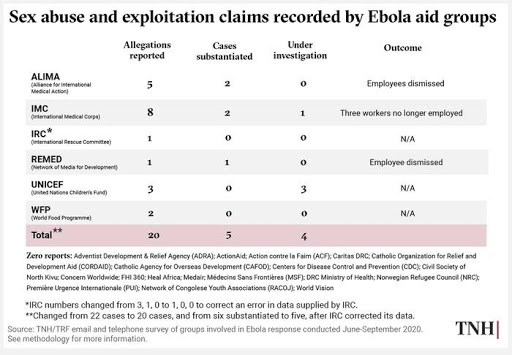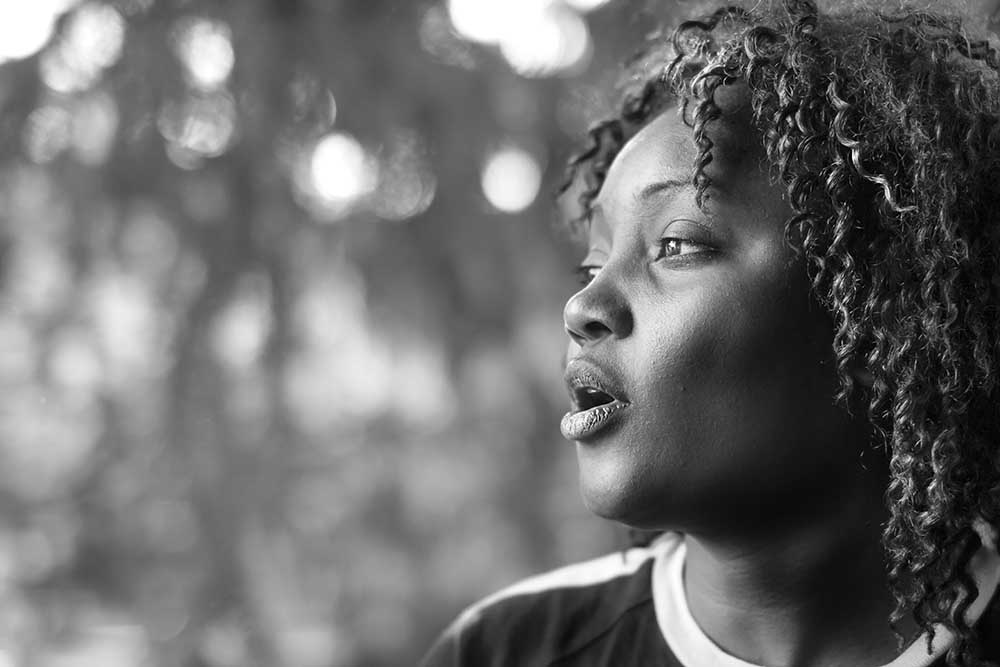The second-largest Ebola outbreak in history is over, but the sexual misconduct investigations regarding WHO’s aid workers in the Congo has just begun.
The Congolese Ebola outbreak started in 2018 and was declared over on June 25, 2020. It had 3481 cases, 2299 fatalities, and 1162 survivors. That sounds awful, and it is, but the human casualties from war were many times worse. In March of 2018, The Guardian reported that 13 million Congolese needed humanitarian aid and 4.5 million were displaced, as militias, some Islamic, fought against the government.

Anastasia Icyizanye, a Medicines-Sans-Frontières worker in the city of Nyabiondo, told The Guardian, “Whenever there is fighting there is systemic rape – in villages, at checkpoints, on roads, whatever.”
The United Nations peacekeeping presence was not enough. Ebola broke out, followed by a 15,000 person, $700 million response. Congolese women weren’t sure why foreigners cared so much about Ebola when more died through massacres. Armed groups waged hundreds of attacks on staff and patients amidst the Ebola response. Not all aid workers were there with altruistic motives, however.
Robert Flummerfelt of the New Humanitarian news agency and Nellie Payton from Thompson Reuters released their disturbing findings on September 29, 2020. Fifty-one women they interviewed claimed sexual exploitation by Ebola aid workers. At least 30 named the World Health Organization, though men from UNICEF, Oxfam, Médecins Sans Frontières, World Vision, ALIMA, and the International Organization for Migration were also accused.
According to the article, “The majority of the women said numerous men had either propositioned them, forced them to have sex in exchange for a job, or terminated their contracts when they refused.”
A 25-year-old cleaner working for the WHO was invited by a doctor to his house to discuss a promotion. He took her to his bedroom, shut the door behind them and said, “There’s a condition. We need to have sex right now,” and started to take off her clothes. She cried and told him to stop. When he did not, she ran outside. At the end of the month, her contract was not renewed.
One victim was an Ebola survivor seeking psychological help. Two became pregnant, one by a WHO doctor.
“So many women were affected by this,” said one 44-year-old woman, who said that to get a job she had sex with a WHO worker. “I can’t think of someone who worked in the response who didn’t have to offer something.”
The leering started before they were even hired. One woman said, “In this response, they hired you with their eyeballs. They’d look you up and down before they’d make an offer.”
Perpetrators were from Belgium, Burkina Faso, Canada, Côte d’Ivoire, France, and Guinea. According to the article, “reports of jobs-for-sex schemes – and other forms of corruption – are not uncommon in humanitarian aid in Congo.” Nidhi Kapur, a consultant hired by CARE international to research gender issues during the Ebola outbreak, said sexual exploitation was a “consistent finding” and “Whether we talked to adolescent girls, or adult women, or women in the community or in the government, everybody said the same thing.”
The stories are saddening. A 32-year-old Ebola survivor whose husband died of the disease received a phone call from a man who invited her to a hotel for counselling. This was not unusual, since UN and NGO offices were often set up there. She accepted a soft drink in the lobby and woke up to find herself naked and alone in a hotel room.
Four agency drivers confirmed that doctors, health workers, and administrators used official drivers to bring women to the hotels and to their offices and homes. One driver claimed a certain doctor asked for young men to be brought to restaurants and hotels. Other boys and young men were paid to procure women.

“It was so common,” said one driver. “I’d say that the majority of us chauffeurs drove men or their victims to and from hotels for sexual arrangements like this. It was so regular, it was like buying food at the supermarket.”
“If they really wanted to help people, they would have done it unconditionally,” said a 24-year-old woman. “Instead of helping us, they destroyed our lives.”
In a statement, WHO expressed “outrage” and said, “The betrayal of people in the communities we serve is reprehensible,” and those responsible would “face serious consequences, including immediate dismissal.” On October 15, WHO announced the co-chairs for an independent commission that would investigate the allegations.
Miranda Brown, a former official with the UN’s Office of the High Commissioner for Human Rights said, “Donor governments should take a much stronger stance and must ensure that taxpayer funds are not misused for the purposes of violating the rights of vulnerable aid recipients.” Indeed, they should.
Lee Harding is a Research Associate with the Frontier Centre for Public Policy.
Photo by twenty20photos on Evanto Elements.



